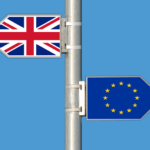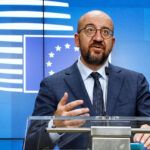Today the European Commission is proposing to create a Digital Green Certificate to facilitate safe free movement inside the EU during the COVID-19 pandemic. The Digital Green Certificate will be a proof that a person has been vaccinated against COVID-19, received a negative test result or recovered from COVID-19. It will be available, free of charge, in digital or paper format. It will include a QR code to ensure security and authenticity of the certificate.
The “Digital Green Certificate” will facilitate safe and free movement during the COVID-19 pandemic within the EU. A Digital Green Certificate will be a proof that a person has been vaccinated against COVID-19, has received a negative test result or has recovered from COVID-19 that can be used across all EU Member States.
Vice-President for Values and Transparency, Věra Jourová said: “The Digital Green Certificate offers an EU-wide solution to ensure that EU citizens benefit from a harmonised digital tool to support free movement in the EU. This is a good message in support of recovery. Our key objectives are to offer an easy to use, non-discriminatory and secure tool that fully respects data protection. And we continue working towards international convergence with other partners.”
What are the main elements of the proposal?
- The Digital Green Certificate system covers three different types of COVID-19 certificates: a vaccination certificate, a test certificate, and a certificate of recovery.
- They can be issued and used in all EU Member States to facilitate free movement. All EU citizens and their family members as well as non-EU nationals staying or residing in the Member States and who have the right to travel to other Member States, would be eligible to receive them free of charge.
- The certificates should only include a minimum set of information necessary to confirm and verify the holder’s vaccination, testing or recovery status.
- Being vaccinated will not be a pre-condition to travel. All EU citizens have a fundamental right to free movement in the EU and this applies regardless of whether they are vaccinated or not. The same principle applies to the rights of non-EU nationals staying or residing in the EU Member States and who have the right to travel to other Member States. The Digital Green Certificate will make it easier to exercise that right, also through testing and recovery certificates.
The Digital Green Certificate will be valid in all EU Member States and open for Iceland, Liechtenstein, Norway as well as Switzerland. The Digital Green Certificate should be issued to EU citizens and their family members, regardless of their nationality. It should also be issued to non-EU nationals who reside in the EU and to visitors who have the right to travel to other Member States.
The Digital Green Certificate system is a temporary measure. It will be suspended once the World Health Organization (WHO) declares the end of the COVID-19 international health emergency.







Leave a Reply